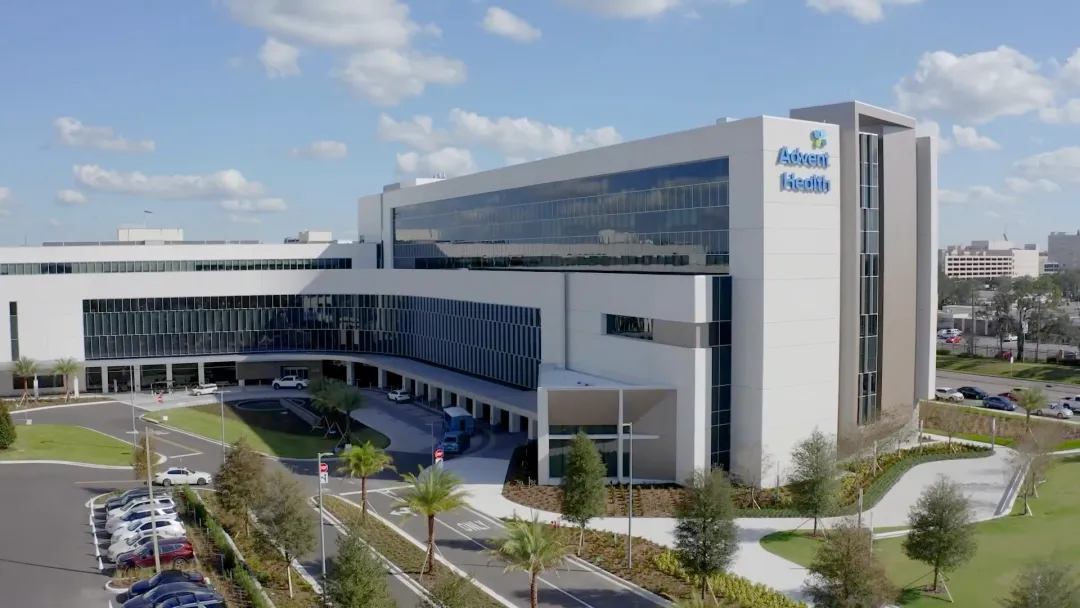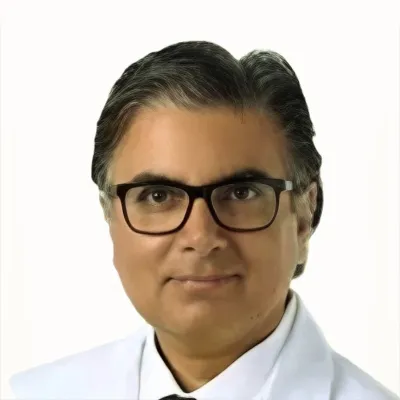
Welcome from the Program Director
Thank you for considering the AdventHealth Tampa Critical Care Fellowship program. As a national leader in healthcare with over 30 hospitals in Florida alone, AdventHealth continues to expand its academic footprint. Supported by one of the largest intensivist groups in the country and housed within one of the largest hospitals in the Tampa area, the AdventHealth Tampa Critical Care Fellowship program is poised to become one of the top ICU training programs nationally. At its core, the AdventHealth Tampa Critical Care Fellowship aims to produce highly trained professionals skilled in all aspects of critical care. Exposure to medical, surgical, cardiovascular, and neuro ICU units and service lines will provide unmatched clinical and procedural experiences, preparing future intensivists to work across a variety of ICU settings. Our robust clinical and outcomes dashboards and databases also offer solid opportunities for applicants interested in clinical research.
We believe that intensivists are the glue that connects and supports the most vital hospital functions. As demonstrated during the pandemic, intensivists are crucial in the care of patients during national emergencies. Our goal is to prepare you to become not only an excellent clinician but also a great leader and ambassador of one of the most fulfilling and rewarding careers in medicine.
Farhan Ali, MD
Program Director
Program Leadership
-

Farhan Ali, MD
Program Director
-
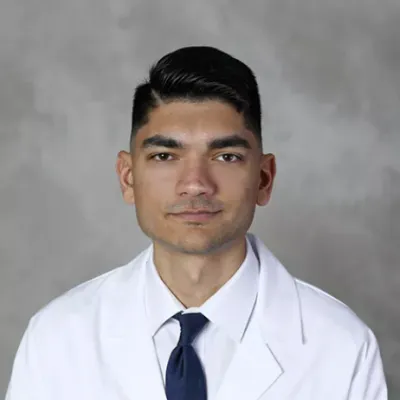
Yuvraj Singh, DO
Associate Program Director
-

Mustafa Fadhel, MD
Core Faculty
-

Megan Plum, DO
Core Faculty
-
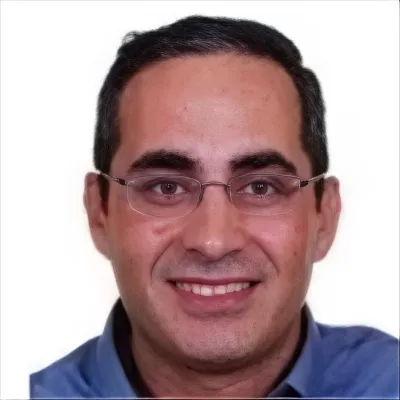
Ammar Saifo, MD
Core Faculty
-
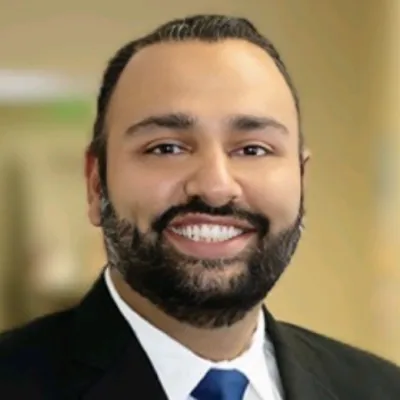
Kapil Vyas, DO
Core Faculty
-

Omid Zad, MD
Core Faculty, Medical Director & Site Director
Core Rotations
The first-year curriculum will focus on procedures such as intubation, cricothyrotomy, and central intravenous placement; interpreting data from monitors like ventilators and end-tidal CO2 monitors; and understanding pharmacological interventions. The second year will emphasize advanced procedures, ventilator management, intervention prioritization, and treating conditions such as shock, sepsis, electrolyte imbalances, cardiac failure, dysrhythmias, renal and hepatic failure, and toxicological emergencies. Fellows will also have the opportunity to explore electives, providing them with a well-rounded, individualized training experience.
- Rotation Schedule
-
The schedule consists of 13 blocks per year, spending 4 weeks per rotation.
Core Rotations PGY - 4 PGY - 5 Medical and Cardiac ICU* 7 7 Neuro and Surgical ICU 2 2 Trauma 0 1 Electives 3 3 *Medical / Cardiac ICUs have a mix of day and night blocks.
- Elective Opportunities
-
- Emergency department
- Heart Failure
- Nephrology
- Infectious Diseases
- Pulmonary
- Cardiology
- Neurology
- Ultrasound
- Research
- Critical Care Transport
- Rapid Response
- Subspecialty ICU (Liver ICU, etc.)
- Rotation Details
-
- Medical ICU: This 20-bed unit accommodates a diverse range of medical patients. Internal medicine residents rotate through this ICU, where the fellow leads rounds and instructs residents under the attending's supervision. Fellows will gain experience in critical care procedures such as intubation, central line placement, hemodialysis, arterial line placement, tube thoracostomy, thoracentesis, paracentesis, and more.
- Cardiovascular Surgical ICU: This 17-bed ICU is dedicated to postoperative cardiac and thoracic surgical patients, as well as those with cardiogenic shock and advanced heart failure. Fellows will manage and be exposed to ECMO (VV and VA), Impella, intra-aortic balloon pump, pulmonary artery catheters, and pacers. Cardiac ICU-specific procedures include pulmonary artery catheter placement and transvenous pacemaker insertion.
- Neuro/Surgical ICU: This 18-bed ICU handles neurological emergencies, neurosurgical, and postoperative surgical patients. Fellows will encounter a variety of neurosurgical and neurological conditions and devices, including EVD. General surgery patients requiring ICU care are also admitted here. General surgery residents rotate through this unit, with the fellow leading rounds and teaching under the attending's supervision.
- Trauma ICU: AdventHealth Tampa is not a trauma center of any designation. While fellows will get exposure to single-system trauma, we have partnered with Orlando Regional Medical Center, a level 1 trauma center, to offer a rotation during the second year in the trauma ICU.
Core Curriculum
In July, first-year fellows must attend a weekly introduction lecture series totaling 12 hours, given by core faculty; second-year fellows are encouraged but not required to attend. Throughout the year, weekly lectures by attendings and healthcare professionals will be held, including subspecialty physician lectures. Attendance is mandatory and tracked, except for days off from clinical responsibility or vacation blocks; non-attendance will not count against them; however, fellows must review recorded lectures at a later time. Tampa will also participate in the interfacility lecture series facilitated by the Florida Society of Critical Care Medicine.
Here at AdventHealth, we provide access to the latest research studies, procedures, and technologies, including exclusive medical, surgical, and device-related clinical trials.
At the Dr. Kiran C. Patel Research Institute, part of the AdventHealth Research Institute, we conduct numerous research studies annually across various clinical disciplines. Our mission is to advance patient care through innovative, patient-focused research. Today's research paves the way for tomorrow's breakthrough medical treatments and advancements.
For more information, please visit: Research Institute | AdventHealth Tampa

Training Sites
Primary clinical rotations occur at the AdventHealth Tampa campus.
AdventHealth Tampa is a tertiary care and referral center with nearly 700 beds and 55 ICU beds, split between Cardiovascular Surgery, Medical, and Neuro/Surgical ICUs.
Orlando Regional Medical Center is a tertiary care facility and serves as the Level One Trauma Center where the Trauma ICU rotation occurs.
Program Information
- Benefits
- Eligibility
-
The fellowship is a 2-year ACGME approved program and is open to graduates of an accredited internal medicine or emergency medicine residency program.
- Diversity and Inclusion
-
- Implicit Bias Training: Faculty will undergo annual training to prevent unconscious biases, ensuring they stay updated on best practices.
- Holistic Review: We use standardized criteria and a holistic approach to evaluate applicants, considering their experiences, attributes, and academic metrics.
- Annual Evaluation: At the end of each recruitment season, the program will critically evaluate its selection criteria for potential sources of bias and implement necessary changes to promote equity and inclusion. A post-match survey will also be distributed to residents to gather insights about diversity and inclusion in the recruitment process from the applicants’ perspectives.
- Cultural Competency Training: To foster inclusion, throughout training we participate in annual training on diversity, equity, and inclusion; unconscious bias in the workplace; and review non-discrimination and anti-harassment policies.
- Ongoing Monitoring: The Program Evaluation Committee (PEC) will assess our diversity efforts regularly and address any barriers to recruitment and retention.

Application Process Join Our Team
Our program accepts 4 fellows per year. We accept applications through the Electronic Residency Application Service (ERAS), and we fill all our spots through the NRMP fellowship match.


